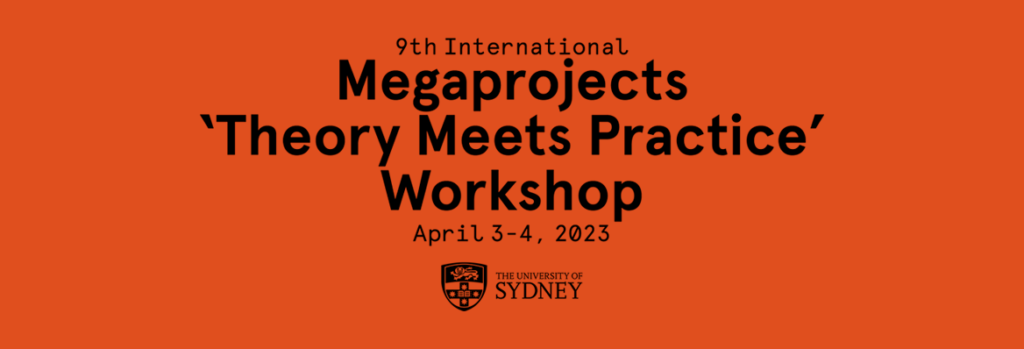
Megaproject management and governance is at crossroads. On the one hand, it operates under the shadow of a legacy consisting of decades-old Western traditions and professional norms, where delivering ‘on time and budget’ is golden standard; where project value chains are restricted to the project customers and suppliers; and where the cost-benefit analysis is about an additive logic that posits that the user willingness to pay needs to outweigh the costs in order for a project to be “value for money”. These traditions have fuelled a judgemental, moralising view on project performance, tracing budget overruns to, at best, managerial incompetence and biases; and at worst, to managerial dishonesty – explanations that have poisoned the relationship between society and megaprojects. Whilst there have been several dissenting voices over time, these voices could not prevent a wide deficit of trust to emerge between society and megaprojects.
On the other hand, in a world that is beset by grand challenges that range from climate change, loss of biodiversity and income inequality to housing shortages, loss of social mobility, polarised politics, and Africa’s exponential population growth, the purpose of capital-intensive projects is increasingly defined by these grand challenges–both in the public sector, as well as in private sector, the so-called ‘industrial’ megaprojects. As such, as the purpose of megaprojects widens towards the production of “socially valuable outcomes”, projects become instruments not only of production of economic returns to be captured by the capital investors based on user willingness to pay, but also instruments of distribution of value to be appropriated by non-users. This also means that as megaprojects intervene into existing context sand are used to ‘make futures’, new ethical questions are emerging that have direct implications both for the purpose of a project and for the value the project aims to create and distribute. In other words, this emerging paradigm suggests the purpose of megaprojects is increasingly defined by what society permits, rather than by what rationalistic tools enable to quantify, measure, and verify.
Reconciling these two paradigms is far from trivial in that the value to be appropriated by stakeholders outside the project value chain as traditionally defined is not indubitable and is often incommensurable. With managers at crossroads and grappling how to reconcile competing logics, we plan to host practitioner-oriented panels to connect theory with practice. We also plan to have sessions that bring together practitioners and academics to collectively develop conceptual insights grounded upon ‘stories’ practitioners relate to. The aim is to uncover actionable recommendations for policy and practice. In addition, we plan to host academic sessions to illuminate the complementarities of the insights yielded from mobilizing differing academic disciplines to make sense of empirical regularities in the world of megaprojects. Hence, we encourage papers that combine theoretically informed studies with empirically-driven research. Please send abstracts and papers and any papers relating to the workshop to Professor Jennifer Whyte and the organizing team at [email protected]
CMR Special Issue on Project-Based Capital Investment: Value Creation and Value Distribution
A paper development workshop will take place on the second day for those interested in submitting a final draft to the forthcoming special issue of California Management Review on Project-based Capital Investment: Value Creation and Value Distribution. The call for papers for this special issue is here. We look forward to your participation.
Key Dates:
- Expressions of Interest with submission of extended abstract (750 words): closed
- Notification on acceptance of Abstracts: 9 December 2022
- Submission of Full papers: 1 March, 2023
- Conference: 3-4 April, 2023
International Advisory Committee
Andrew DAVIES, University of Sussex Business School, UK
Nuno GIL, Alliance Manchester Business School, UK
ChongQing GUO, School of Economics and Management, Tongji University, China
Young Hoon KWAK, George Washington University, Washington, D.C., USA
Yun LE, School of Economics and Management, Tongji University, China
Andrea PRENCIPE, LUISS Guido Carli University, Italy
Peter LOVE, Curtin University, Australia
Ashwin MAHALINGAM, Indian Institute of Technology Madras
Nathalie DROUIN, Université du Québec à Montréal Monique AUBRY, Université du Québec à Montréal
Local Technical and Organizing Committee
Jennifer WHYTE, University of Sydney, Australia
Nuno GIL, Visiting Professor, University of Sydney, Australia
Suhair ALKILANI, University of Sydney, Australia
Ken CHUNG, University of Sydney, Australia
Nader NADERPAJOUH, University of Sydney, Australia
Tooran ALIZADEH, University of Sydney, Australia


